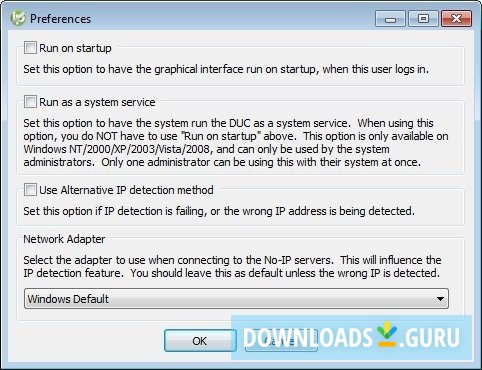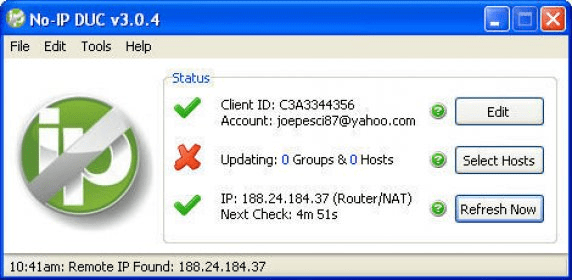

However, typical run-time models are close to an implementation level of abstraction which impedes understandability for humans. Run-time models are kept insync with the underlying system. During operation the systems often drifts away from its design-time models. Models are useful for involving humans and conducting analysis, e.g. While previous research focused on automated adaptation, increased complexity and heterogeneity of cloud services as well as their limited observability, makes evident that we need to allow operators (humans) to engage in the adaptation process. Yet at the same time, it leads to major challenges like limited control of third party infrastructures and runtime changes which mostly cannot be foreseen during development.
Download no ip duc 4.0.2 software#
2īuilding software systems by composing third-party cloud services promises many benefits such as flexibility and scalability. It is an important step for efficiency of these supply chains and therefore one important cornerstone for the success of Industry 4.0.

Our novel approach paves way for data sharing and global data analyzes in highly dynamic Industry 4.0 supply chains. We introduce the combination of Palladio Component Model (PCM) and Ensembles in order to analyze and enforce privacy policies in highly dynamic environments. We further propose a reference architecture for Industry 4.0 supply chains. To enforce privacy, we analyze two industrial settings and derive general requirements: (1) Lean-and shopfloor-management and (2) factory access control, both common in Industry 4.0 supply chains. These are highly dynamic and therefore not manageable by 'traditional' rights-management approaches as we will stretch in a literature analysis. Our approach is enforcing privacy policies in Industry 4.0 supply chains.

However, trust by preserving privacy is a precondition: Competing factories will not share data, if, e.g., the analysis of the data will reveal business relevant information to competitors. Fostering efficiency of distributed supply chains in the Industry 4.0 often bases on IoT-data analysis and by means of lean-and shopfloor-management.


 0 kommentar(er)
0 kommentar(er)
